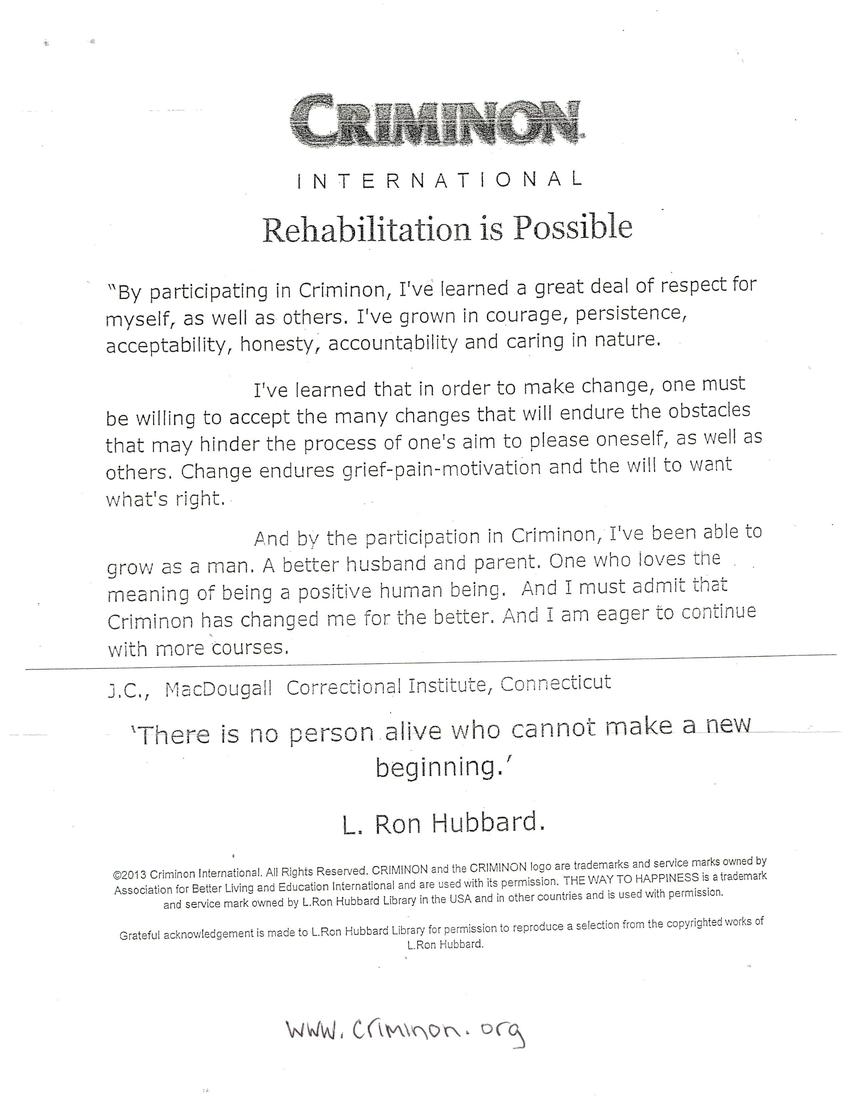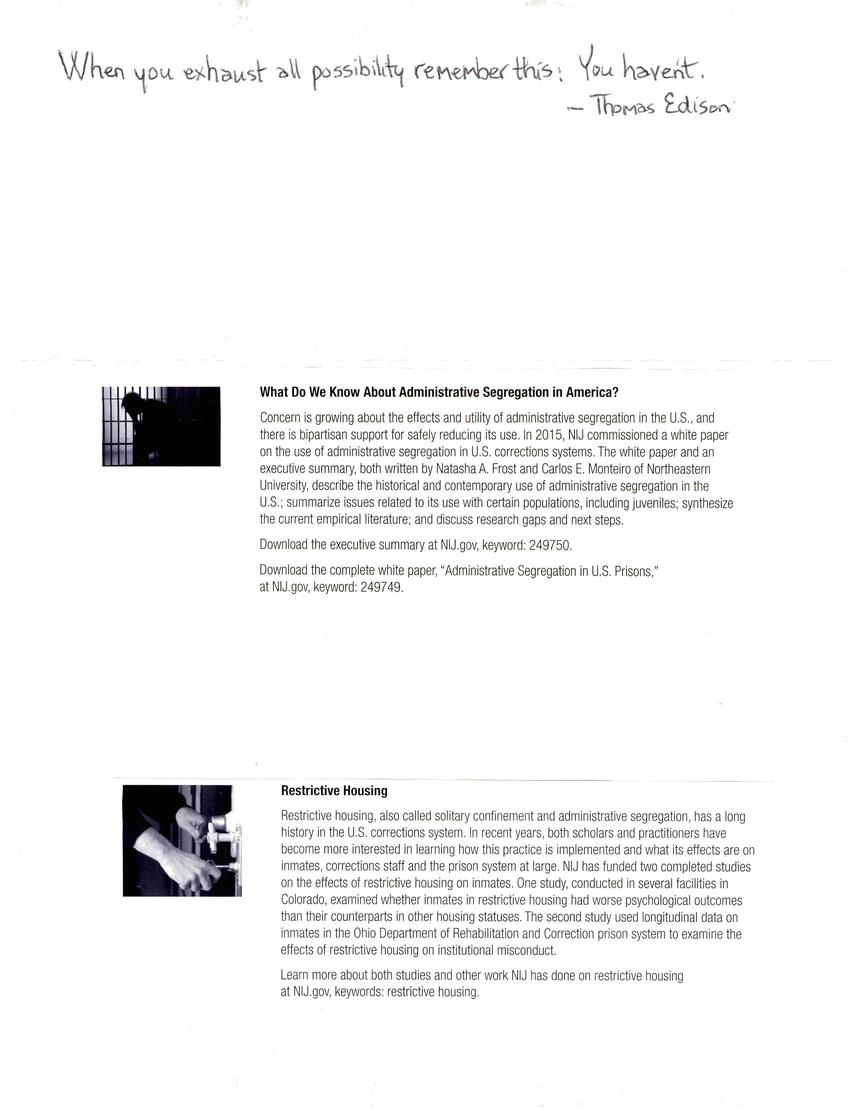
Transcription
http://www.criminon.org
Criminon International
Rehabilitation is Possible
"By participating in Criminon, I've learned a great deal of respect for myself, as well as others. I've grown in courage, persistence, acceptability, honesty, accountability, and caring in nature.
"I've learned that in order to make change, one must be willing to accept many changes that will endure the obstacles that may hinder the process of one's aim to please oneself, as well as others. Change endures grief-pain-motivation and the will to want what's right.
"And by the participation in Criminon, I've been able to grow as a man. A better husband and parent. One who loves the meaning of being a positive human being. And I must admit that Criminon has changed me for the better. And I am eager to continue with more courses."
—J.C., MaCDougall Correctional Institute, Connecticut
"There is no person alive who cannot make a new beginning."
—L. Ron Hubbard
===
"When you exhaust all possibility remember this: You haven't."
—Thomas Edison
===
https://www.nij.gov/journals/277/pages/bulletin.aspx
What Do We Know About Administrative Segregation in America?
Concern is growing about the effects and utility of administrative segregation in the U.S., and there is bipartisan support for safely reducing its use. In 2015, NIJ commissioned a white paper on the use of administrative segregation in U.S. corrections systems. The white paper and an executive summary, both written by Natasha A. Frost and Carlos E. Monteiro of Northeastern University, describe the historical and contemporary use of administrative segregation in the U.S.; summarize issues related to its use with certain populations, including juveniles; synthesize the current empirical literature; and discuss research gaps and next steps.
Download the executive summary (pdf, 8 pages).
Download the complete white paper, "Administrative Segregation in U.S. Prisons" (pdf, 42 pages).
---
https://nij.gov/topics/corrections/institutional/Pages/restrictive-housing.aspx
Restrictive Housing
Restrictive housing, also called administrative segregation and solitary confinement, has a long history in the U.S. corrections system. The empirical literature on this important issue has grown, and in recent years, scholars have continued to systematically study how restrictive housing is used in correctional settings and what effects it has on inmates, corrections staff and the prison organization at large.
NIJ has funded two completed longitudinal studies on restrictive housing. One study, conducted in several facilities in Colorado, examined whether inmates in restrictive housing had worse psychological outcomes than their counterparts in other housing statuses. The second study used longitudinal data on inmates in the Ohio Department of Rehabilitation and Correction prison system to examine the effects of restrictive housing on institutional misconduct.
Learn more about both studies and other work NIJ has done on restrictive housing at NIJ.gov, keywords: restrictive housing.
Other posts by this author
|
2023 may 31

|
2023 apr 5

|
2023 mar 19

|
2023 mar 5

|
2023 mar 5

|
2023 mar 5

|
More... |



Replies (2)
There is no APA ext purchased. So I don't know where that came from??
ml, Erne